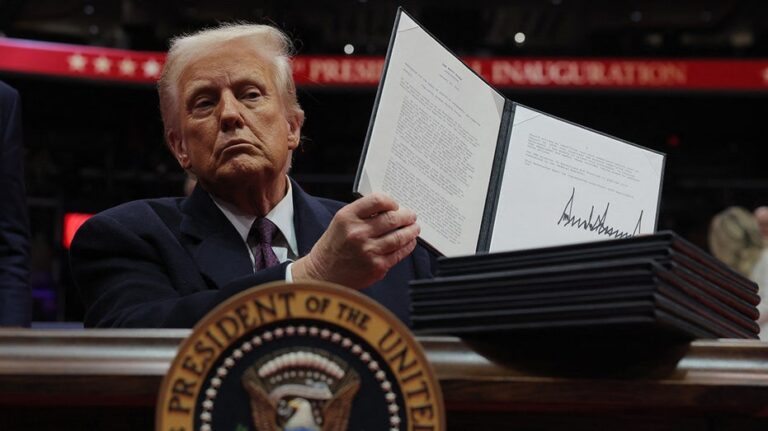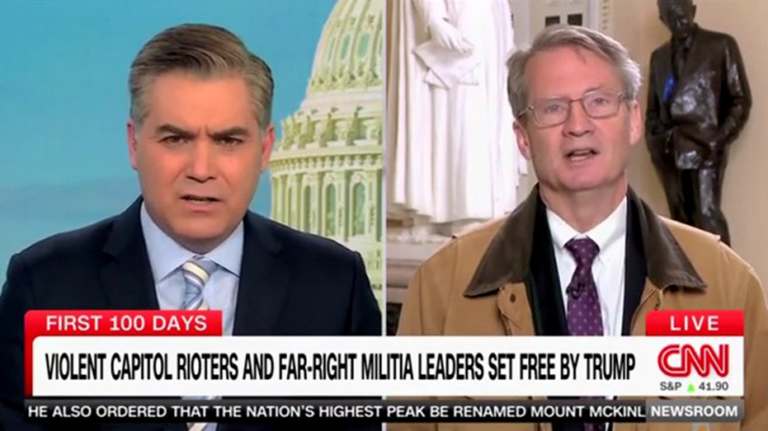
IDF Reserve Brig. Gen. Amir Avivi says “two things” changed regarding the Israel-Hamas cease-fire agreement after fifteen months of conflict in the Middle East.
“This deal has been on the table since May last year and Hamas opposed it completely. Why? There was no real pressure on Hamas,” Avivi told “Your World” on Wednesday. “Israel wanted to stop some of the humanitarian aid, especially some of the gasoline, but the administration wouldn’t let us do that. So Israel has no major leverage on them.”
“What’s changed is two things,” Avivi told Fox News. “One, Israel defeated Hezbollah and Hezbollah cannot support Hamas anymore. Also, Syria fell. Iran is weaker. But the big change is President Trump’s threat.”
BIDEN BALKS WHEN ASKED IF TRUMP DESERVED CREDIT FOR ISRAEL-HAMAS CEASE-FIRE DEAL: ‘IS THAT A JOKE?’
“Once President Trump threatened them, that if they don’t release hostages, there will be hell… I think they understand that if they don’t get a deal now, the chances of getting a good deal for them will be very, very low, if at all. And therefore, they made their own assessment, and they are inclined to do the deal, thinking that they’ll maximize what they can get now and not wait to see what ‘hell’ means,” Avivi stated.
On Wednesday, President Biden’s White House National Security communications adviser John Kirby recognized President-elect Donald Trump’s incoming Middle East special envoy Steve Witkoff as a key figure in brokering the deal.
President-elect Donald Trump warned Hamas on Jan. 7 that “all hell will break out” if hostages are not returned by his inauguration.
TRUMP REINFORCES ‘ALL HELL WILL BREAK OUT’ IF HOSTAGES NOT RETURNED BY INAUGURATION
The agreement is set to take effect on Jan. 19, one day before President-elect Donald Trump’s inauguration.
Avivi expressed uncertainty about whether the deal between the two nations will hold, cautioning that Hamas may attempt to do “different tricks and try to trick Israel in one way or another.”
It’s “just the beginning” and we’ll have to “wait and see,” Avivi emphasized.
IDF Reserve Brig. Gen. Amir Avivi says “two things” changed regarding the Israel-Hamas cease-fire agreement after fifteen months of conflict in the Middle East.
“This deal has been on the table since May last year and Hamas opposed it completely. Why? There was no real pressure on Hamas,” Avivi told “Your World” on Wednesday. “Israel wanted to stop some of the humanitarian aid, especially some of the gasoline, but the administration wouldn’t let us do that. So Israel has no major leverage on them.”
“What’s changed is two things,” Avivi told Fox News. “One, Israel defeated Hezbollah and Hezbollah cannot support Hamas anymore. Also, Syria fell. Iran is weaker. But the big change is President Trump’s threat.”
BIDEN BALKS WHEN ASKED IF TRUMP DESERVED CREDIT FOR ISRAEL-HAMAS CEASE-FIRE DEAL: ‘IS THAT A JOKE?’
“Once President Trump threatened them, that if they don’t release hostages, there will be hell… I think they understand that if they don’t get a deal now, the chances of getting a good deal for them will be very, very low, if at all. And therefore, they made their own assessment, and they are inclined to do the deal, thinking that they’ll maximize what they can get now and not wait to see what ‘hell’ means,” Avivi stated.
On Wednesday, President Biden’s White House National Security communications adviser John Kirby recognized President-elect Donald Trump’s incoming Middle East special envoy Steve Witkoff as a key figure in brokering the deal.
President-elect Donald Trump warned Hamas on Jan. 7 that “all hell will break out” if hostages are not returned by his inauguration.
TRUMP REINFORCES ‘ALL HELL WILL BREAK OUT’ IF HOSTAGES NOT RETURNED BY INAUGURATION
The agreement is set to take effect on Jan. 19, one day before President-elect Donald Trump’s inauguration.
Avivi expressed uncertainty about whether the deal between the two nations will hold, cautioning that Hamas may attempt to do “different tricks and try to trick Israel in one way or another.”
It’s “just the beginning” and we’ll have to “wait and see,” Avivi emphasized.



